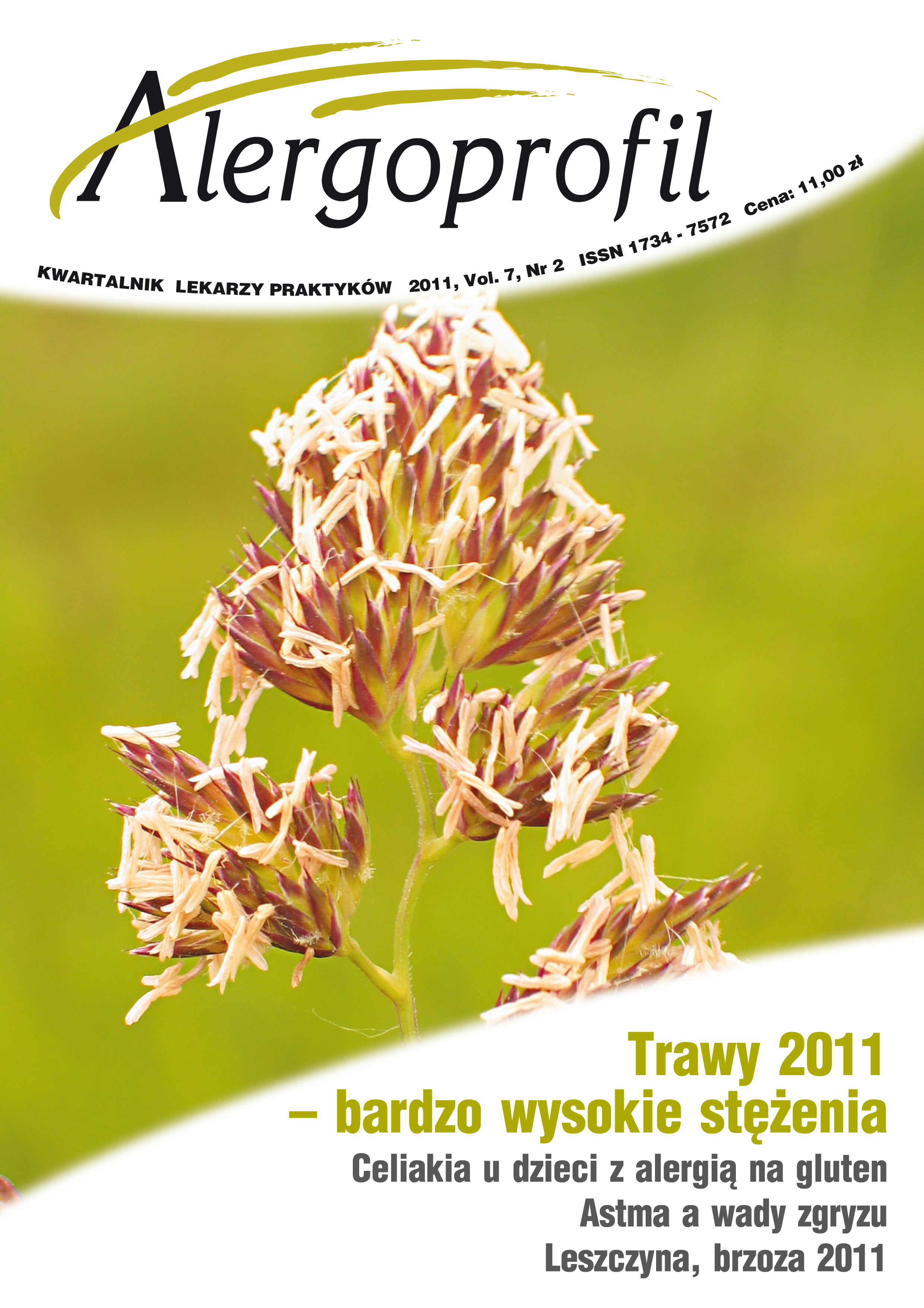Allergic reactions and other adverse reactions after administration of intravenous echocardiographic contrast agents
Main Article Content
Abstract
Contrast echocardiography is becoming a useful tool in modern cardiology. The aim of this study was to assess the prevalence of allergic reactions and other adverse reactions related to 2nd generation intravenous echocardiographic contrast. The study group comprised 185 patients: 103 patients (group 1) with stable coronary artery disease and 82 patients (group 2) hospitalized with first acute ST-elevation myocardial infarction. Patients from group 1 underwent stress contrast echocardiography, whereas patients from group 2 underwent resting contrast echocardiography 7–10 days after myocardial infarction. There were no serious allergic and adverse reactions or necessity to stop the examination at patient’s request. The most prevalent minor side effects were: in group 1 chest pain (32%) and in group 2 headache (2,4%). To summarize, the 2nd generation echocardiographic contrast agents used currently are safe in clinically stable patients.
Downloads
Article Details
Copyright: © Medical Education sp. z o.o. This is an Open Access article distributed under the terms of the Attribution-NonCommercial 4.0 International (CC BY-NC 4.0). License (https://creativecommons.org/licenses/by-nc/4.0/), allowing third parties to copy and redistribute the material in any medium or format and to remix, transform, and build upon the material, provided the original work is properly cited and states its license.
Address reprint requests to: Medical Education, Marcin Kuźma (marcin.kuzma@mededu.pl)
References
2. Lipiec P., Wejner-Mik P., Krzemińska-Pakuła M. et al.: Accelerated stress real-time myocardial contrast echocardiography for the detection of coronary artery disease: comparison with 99mTc single photon emission computed tomography. J. Am. Soc. Echocardiogr. 2008, 21(8): 941-7.
3. Kaul S.: Myocardial contrast echocardiography: basic principles. Prog. Cardiovasc. Dis. 2001, 44(1): 1-11.
4. Dolan M.S., Gala S.S., Dodla S. et al.: Safety and efficacy of commercially available ultrasound contrast agents for rest and stress echocardiography a multicenter experience. J. Am. Coll. Cardiol. 2009, 53(1): 32-8.
5. Geleijnse M.L., Nemes A., Vletter W.B. et al.: Adverse reactions after the use of sulphur hexafluoride (SonoVue) echo contrast agent. J. Cardiovasc. Med. (Hagerstown) 2009 Jan, 10(1): 75-7.
6. www.emea.eu.int. Dostęp: 22 lutego 2011 r.
7. www.fda.gov. Dostęp: 22 lutego 2011 r.
8. Lipiec P., Wejner-Mik P., Krzemińska-Pakuła M. et al.: Ocena perfuzji mięśnia sercowego w echokardiografii kontrastowej czasu rzeczywistego poprawia wartość diagnostyczną testu dipirydamolowego: doniesienie wstępne. Polski Przegląd Kardiologiczny 2006, 8(3): 187-192.
9. Romero J.R., Frey J.L., Schwamm L.H. et al.: Cerebral ischemic events associated with ‘bubble study’ for identification of right to left shunts. Stroke 2009, 40(7): 2343-8.
10. Serra V., Fernandez M.A.G., Zamorano J.L.: Microbubbles: basic principles. W: Zamorano J.L., Fernandez M.A.G.: Contrast echocardiography in clinical practice. Springer, Milan 2004: 19-44.
11. Wei K., Skyba D.M., Firschke C., Jayaweera A.R., Lindner J.R., Kaul S.: Interactions between microbubbles and ultrasound: in vitro and in vivo observations. J. Am. Coll. Cardiol. 1997, 29(5): 1081-8.
12. Ay T., Havaux X., Van Camp G. et al.: Destruction of contrast microbubbles by ultrasound: effects on myocardial function, coronary perfusion pressure, and microvascular integrity. Circulation 2001, 104(4): 461-6.
13. Kusnetzky L.L., Khalid A., Khumri T.M. et al.: Acute mortality in hospitalized patients undergoing echocardiography with and without an ultrasound contrast agent: results in 18,671 consecutive studies. J. Am. Coll. Cardiol. 2008, 51(17): 1704-6.
14. Varga A., Garcia M.A., Picano E.; International Stress Echo Complication Registry: Safety of stress echocardiography (from the International Stress Echo Complication Registry). Am. J. Cardiol. 2006, 98(4): 541-3.

